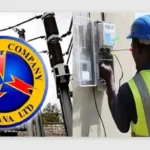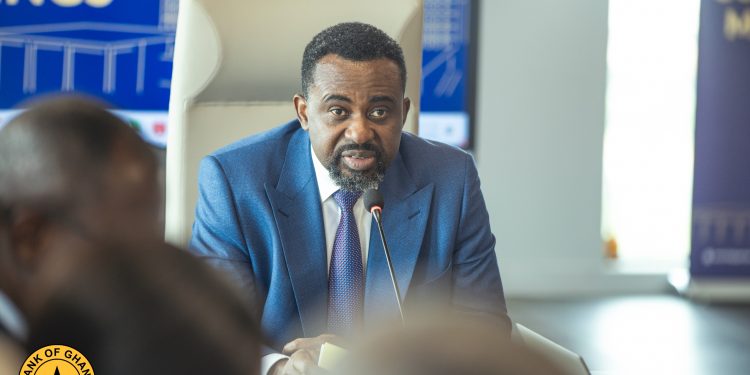U.S. renewable energy associations and the biggest oil and gas industry lobby are united by a common cause—getting permitting reforms done to unlock the full benefits of the Inflation Reduction Act and boost domestic energy production.
In one of the most unusual ‘alliances’ in recent months, the American Petroleum Institute (API) and industry groups of clean energy producers and utilities have been urging Congress to amend the legislation on project permitting, including shortening the timelines for review under the National Environmental Policy Act (NEPA).
As Congress is discussing a debt ceiling deal, associations in both the oil and gas industry and the renewable energy sector are meeting with lawmakers to offer their viewpoints and express concerns about how a slow permitting process is hindering pipeline and offshore wind construction, and grid upgrades and expansions.
The oil lobby and the clean energy sector could even send joint delegations for talks with lawmakers soon, representatives of the industry groups tell the Financial Times.
“This is Big Wind and Big Solar coming to the table and saying we want to get things done,” Jason Grumet, head of the American Clean Power Association, told FT.
A possible deal on the debt limit between Republicans and Democrats could include a way forward to amending permitting performs, analysts say.
Permitting Reform Hinders Offshore Wind Development
In the meantime, both clean energy groups and API urge reforms to put America on track to meet its climate goals and renewable energy installation targets, and raise domestic oil and gas production to lower dependence on foreign energy sources.
The Inflation Reduction Act of 2022 and the Infrastructure Investment and Jobs Act of 2021, commonly referred to as the Bipartisan Infrastructure Law (BIL), were the two acts promising to drive growth in clean energy installations.
However, “Barriers to deployment, such as siting and permitting challenges, supply-chain constraints, and social acceptance of electricity infrastructure development, could significantly reduce the rate of clean electricity deployment,” the National Renewable Energy Laboratory (NREL) said in a recent report.
Specifically in the offshore wind industry, “Major offshore wind manufacturing facilities can only be built in suitable ports, but construction of these facilities is constrained by limited available port space and uncertain permitting and construction timelines,” NREL said in a separate report.
In the supply chain development, “Major projects have experienced delays due to permitting and legal complications or increased costs relative to initial public filings,” it added.
Early this year, the Department of the Interior announced that the Bureau of Ocean Energy Management (BOEM) would publish a proposed rule to update regulations for clean energy development on the U.S. Outer Continental Shelf (OCS). The proposed rules are aimed at modernizing regulations, streamlining overly complex and burdensome processes, clarifying ambiguous provisions, and enhancing compliance provisions to lower costs and uncertainty associated with deploying offshore wind facilities.
Clean Energy Group Warns Permitting Delays Hold Back Economy
The American Clean Power Association says that failure to act on permitting reform puts an estimated 100 gigawatts (GW) of clean energy projects at risk of significant delay. The association supports commonsense infrastructure permitting reform to unlock clean energy, American investment, and jobs.
“Successful deployment of wind, solar, storage, hydrogen and transmission projects requires a predictable, timely, and cost-effective permitting framework. However, the current process is anything but,” the group notes.
Currently, the average timeline for a project to obtain necessary NEPA reviews is four and a half years, while the average timeline for transmission projects is even longer, six and a half years.
According to the American Clean Power Association, “It shouldn’t take up to a decade just to permit an energy project. Congress should consider reasonable reforms to the permitting process that will help ensure it strikes the right balance of timely decisions for projects while preserving thorough environmental reviews.”
Slow Permitting Hits Grid Transmission Expansion, Too
Permitting delays are also hampering the expansion of the grid to accommodate growing renewable energy generation, associations say.
The Edison Electric Institute representing all U.S. investor-owned electric companies says studies have shown that transmission infrastructure in the U.S. would have to double, or even triple, in order to reach a net-zero economy by 2050 and to support widespread electrification.
“But one persistent challenge to expanding the transmission system and deploying more clean energy is the inefficient siting and permitting process for critical infrastructure such as transmission lines,” EEI said earlier this month.
Also this month, more than 40 clean energy organizations, environmental groups, developers, manufacturers, labor and consumer groups encouraged Congress to consider increased funding for the Grid Deployment Office (GDO) “to support innovative efforts to address planning and permitting challenges to enable a resilient and reliable electricity system.”
Researchers at Princeton University said in a report last year that “Constraining transmission growth severely limits the expansion of wind and solar power.”
Oil & Gas Industry Also Seeks Reform
Permitting delays present obstacles for the oil and gas industry, too, API says, as it has been calling for years for meaningful commonsense reform to permitting processes.
In recent years, at least ten major energy infrastructure projects – representing $34 billion in capital investment – have been canceled or are at risk of cancellation due to delayed and uncertain permitting processes, API says.
“Congress has a unique opportunity to fix America’s broken permitting process. Modernizing our permitting process will speed up approvals, create American jobs, and enable the faster movement of energy where it is needed most,” API President and CEO Mike Sommers said last week in the latest call on U.S. policymakers.
















